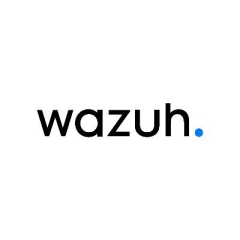What is our primary use case?
My company specializes in providing SIEM as a service. We leverage Wazoo for that. Since Wazoo is open-source, I hosted it on Azure.
We provide Wazuh as a service to our customers. Currently, we have three clients whose environments are integrated with our Wazuh server on our CRM system. We handle the typical CRM use cases, including security alerts and advisories, and monitor their environments through our Wazuh server.
How has it helped my organization?
It allows you to aggregate all your logs in one place and provides a unified view to monitor your security environment. Unlike other solutions, Wazuh is open-source, so you don't need to invest in significant capital expenses. You can easily set up a server on Azure or your infrastructure. While you will need specialized personnel to operate it, this is true for any SIEM solution.
What is most valuable?
One of Wazuh's most significant advantages, aside from being open source, is its flexible dashboards. Integrated with Elasticsearch, Wazuh allows you to create customized dashboards if you have an in-house developer. This level of customization isn’t available with Fortinet, which offers only pre-made dashboards. Wazuh lets you design any dashboard you need.
What needs improvement?
Wazuh doesn't have native support for some enterprise solutions. It requires an agent installed on the server, whether Windows Server or Linux, to collect logs. While you can gather information via SNMP or Splunk logs, this isn't natively supported. Some decoders are available, but they are community-built rather than officially supported. It relies on its community to create these decoders as an open-source platform, so they may not be fully integrated.
What do I think about the stability of the solution?
It's pretty stable. If it's not properly implemented, you don't have stability problems if you follow the documentation and do it as detailed documentation.
What do I think about the scalability of the solution?
Wazuh is highly scalable. You can install it on-premises, in Azure, or using Docker. The architecture allows you to separate the dashboard, index, and node servers.
How are customer service and support?
Wazuh offers technical support, but you need to pay for it. If you are using the open-source solution, you'll need to rely on the extensive documentation and the community itself.
How would you rate customer service and support?
How was the initial setup?
The initial setup is complicated. You need a specialist in the technology to make good use of it. You can do it on-premises. You can do it on Azure. You can do it on the hybrid cloud as a docker. So it's very flexible.
We use Azure, which we currently use as a single server. We will migrate it to our partner using Azure.
It takes two months to deploy completely.
What was our ROI?
You save on licensing, and you need to invest in people.
What other advice do I have?
When Wazuh is properly implemented, it runs smoothly without causing many problems. However, if it's not set up correctly, you might encounter issues that require weekly maintenance. These can include database and disk issues because, as a VM solution, Wazuh collects a large amount of logging data. Proper implementation prevents these problems, but they can arise if you're unsure how to do it.
Overall, I rate the solution an eight out of ten.
Disclosure: My company has a business relationship with this vendor other than being a customer: Partner























